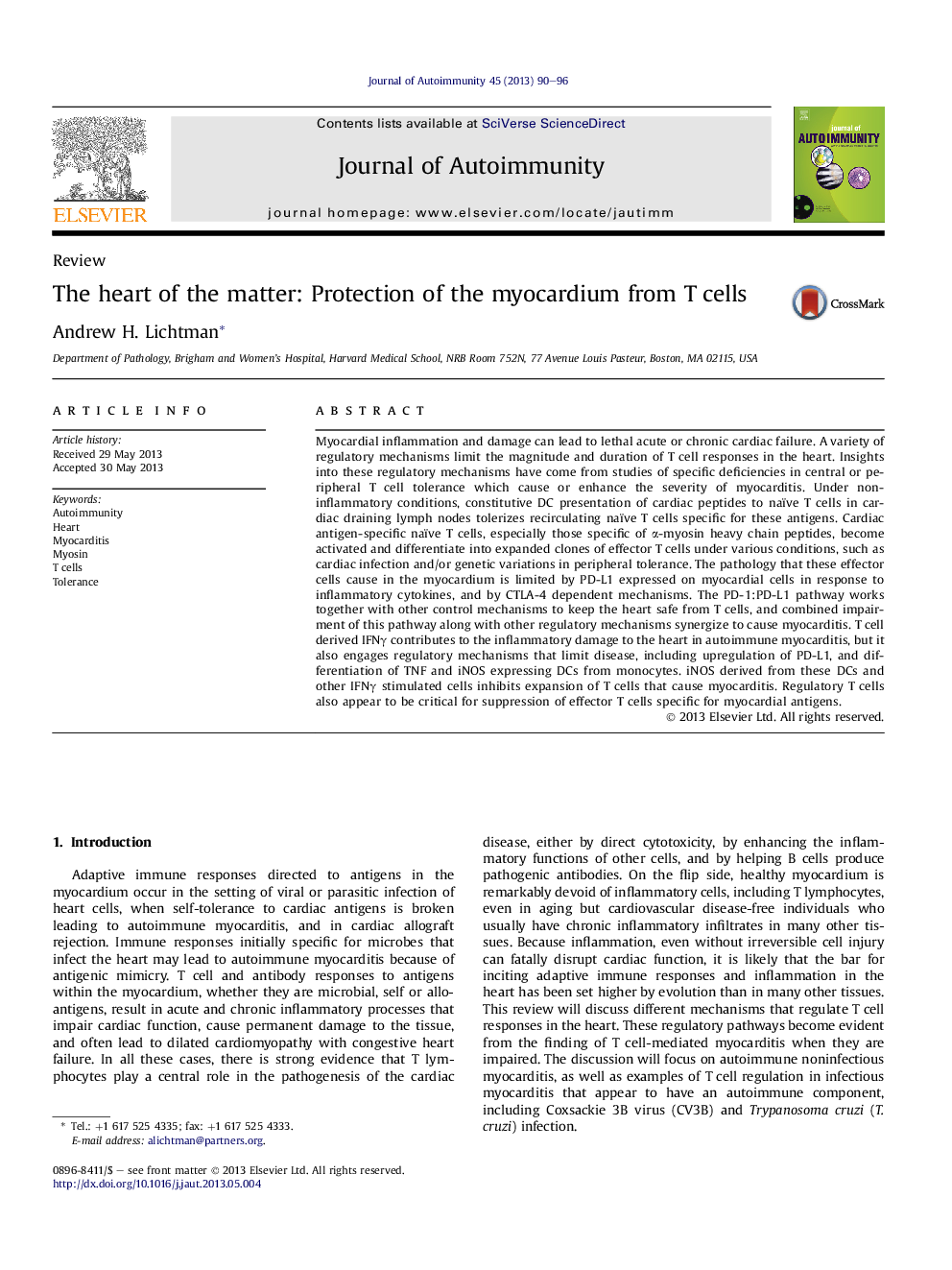| Article ID | Journal | Published Year | Pages | File Type |
|---|---|---|---|---|
| 6119324 | Journal of Autoimmunity | 2013 | 7 Pages |
Abstract
Myocardial inflammation and damage can lead to lethal acute or chronic cardiac failure. A variety of regulatory mechanisms limit the magnitude and duration of T cell responses in the heart. Insights into these regulatory mechanisms have come from studies of specific deficiencies in central or peripheral T cell tolerance which cause or enhance the severity of myocarditis. Under non-inflammatory conditions, constitutive DC presentation of cardiac peptides to naïve T cells in cardiac draining lymph nodes tolerizes recirculating naïve T cells specific for these antigens. Cardiac antigen-specific naïve T cells, especially those specific of α-myosin heavy chain peptides, become activated and differentiate into expanded clones of effector T cells under various conditions, such as cardiac infection and/or genetic variations in peripheral tolerance. The pathology that these effector cells cause in the myocardium is limited by PD-L1 expressed on myocardial cells in response to inflammatory cytokines, and by CTLA-4 dependent mechanisms. The PD-1:PD-L1 pathway works together with other control mechanisms to keep the heart safe from T cells, and combined impairment of this pathway along with other regulatory mechanisms synergize to cause myocarditis. T cell derived IFNγ contributes to the inflammatory damage to the heart in autoimmune myocarditis, but it also engages regulatory mechanisms that limit disease, including upregulation of PD-L1, and differentiation of TNF and iNOS expressing DCs from monocytes. iNOS derived from these DCs and other IFNγ stimulated cells inhibits expansion of T cells that cause myocarditis. Regulatory T cells also appear to be critical for suppression of effector T cells specific for myocardial antigens.
Related Topics
Life Sciences
Immunology and Microbiology
Immunology
Authors
Andrew H. Lichtman,
